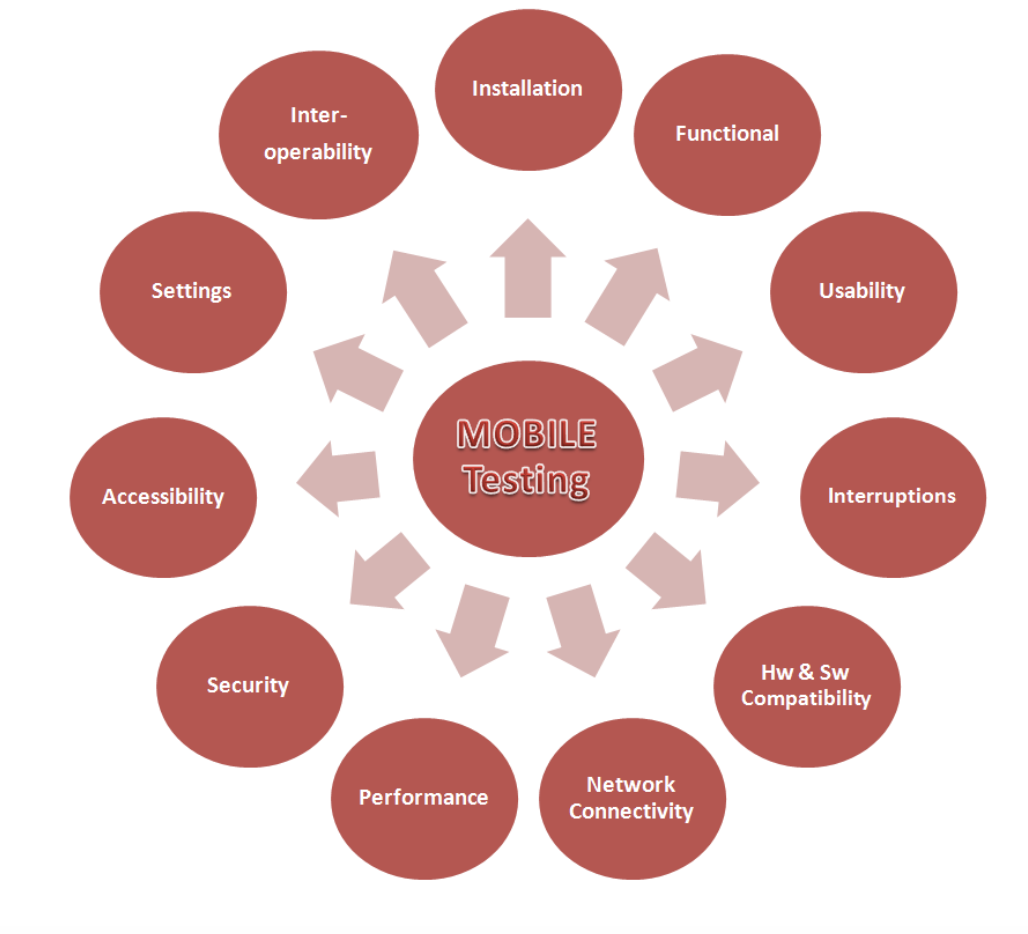When it comes to defining a test plan, establishing the types of tests that will be executed during the testing cycle(s) is a fundamental task.
There will always be essential tests that will be part of the testing cycles throughout a project regardless of the software being tested (functional and regression testing are two such examples). However, the focus and scope of these tests will depend on the software.

When considering mobile applications, testing must include aspects that are very specific to the type of software. It would be unwise to disregard elements such as installation testing, compatibility with a great variety of devices (something that is particularly challenging on Android), and usability testing since interaction with the application is not limited to simple clicks and a keyboard (users can use gestures or voice commands). Additionally, with mobile, it must be taken into consideration that the app could be used in different network conditions, on devices with limited resources, and while interacting simultaneously with multiple applications.
So, how can you make sure your testing plan not only includes the necessary tests but also integrates the required focus and depth to guarantee the quality of an application that will be released in a highly demanding market? Furthermore, you must keep in mind, users are greatly attached to their mobile devices and competition is tough due to the rising quantity of rival apps.
The following are some simple yet effective suggestions for ensuring a robust set of tests when defining a test plan for mobile applications.
- Testing plans should always include installation testing. This type of test should not be omitted since among other things, it guarantees a successful installation on all versions of the required operating system. Additionally, this test ensures in the event of an update to a new app version, the update installation will be executed adequately without modifying the user’s data or settings. App size should also be validated since you must make certain it does not exceed the maximum size allowed by the Store.
- When defining functional tests, it is imperative to remember that it’s not only about testing on a small screen. It is important to consider the interaction with the operating system and the device, such as managing permissions, the use of gestures, and interaction with the native keyboard.
The application should be tested while running with other applications simultaneously. Therefore, interruption testing should be included so that correct interruption management can be guaranteed, such as when receiving calls, alarms or notifications from other apps. - Network connection tests are also very important. When it comes to mobile devices and their applications, these should be able to support frequent changes between wifi networks, mobile data, and intermittent periods with no connection. Specific test cases should be included when the application supports offline features and may require data synchronization in the cloud.
- Usability tests are very relevant in the case of mobile apps. Given that devices have small screens, the size and positioning of each element is important. Developers should avoid over-saturating the screen or using poor browsing methods; these are functional aspects that should also be tested. Moreover, it’s key to make certain you are adhering to mobile standards, such as Material Design.
When working with mobile applications, it’s not just about running tests on the smallest screens, it’s also important to remember that these apps will be used by a great number of users that interact with their devices in diverse ways and in different conditions. Therefore, knowing the app’s target audience is crucial and will be of great help when defining your test plan, the types of tests you’ll need to include, and test case specifications.
